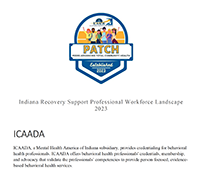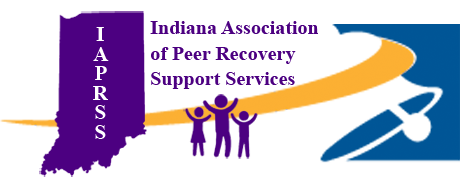Peer Information
The following peer recovery publications are now available, to help individuals and organizations understand the expected professional standards for Peer Recovery Coaches (PRC) and their supervision.

Indiana Recovery Support Professional Workforce Landscape 2023
In the summer of 2023, ICAADA disseminated a survey to collect information related to the state of the Indiana recovery support workforce. Survey respondents were participants in recovery support training and those holding recovery support certifications in Indiana. These recovery support professionals reported their experiences related to providing professional recovery support, previous and current education, employment status, compensation, work and life matters, as well as future career goals. As the professional recovery support workforce continues to grow, emerging trends show the uniqueness of this profession.
